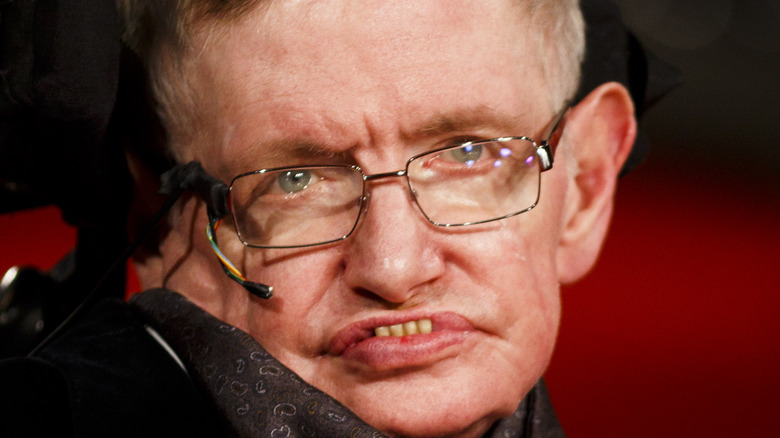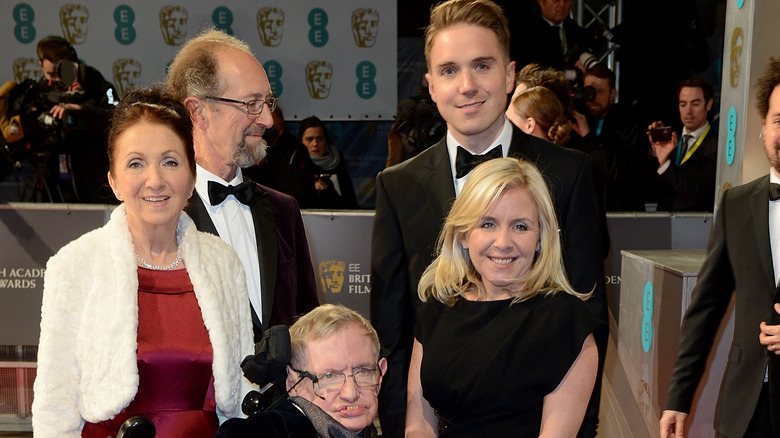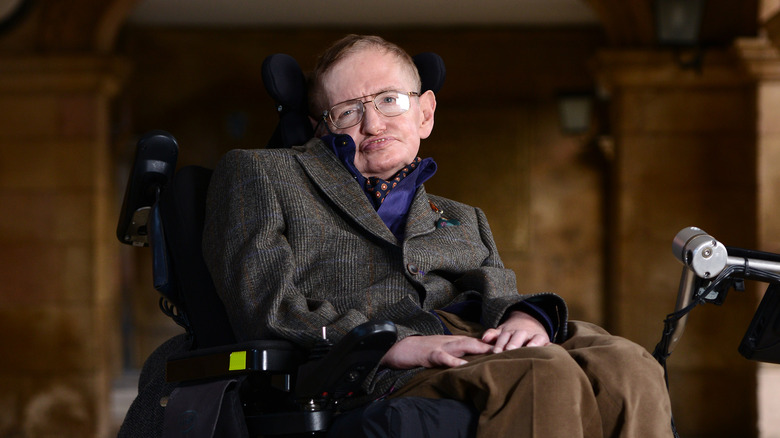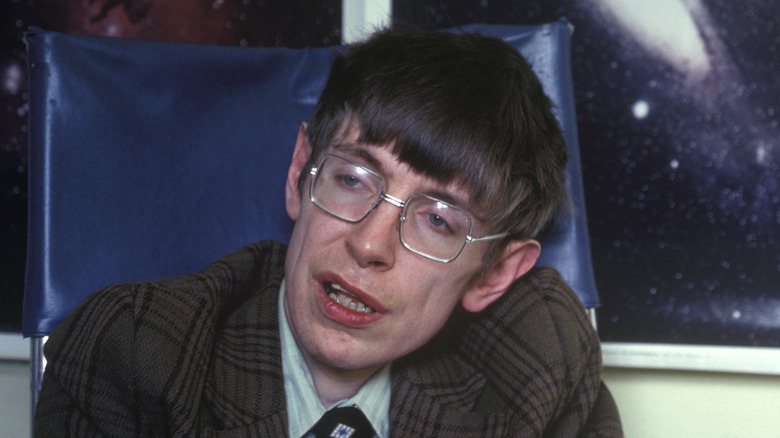Here's Who Inherited Stephen Hawking's Money After He Died
The life and legacy of the late Stephen Hawking stands as a testimony to what one can achieve against all odds. Throughout the span of his 76 years on earth, the certified genius and physicist dedicated his life to unveiling all things within and beyond the scope of our planet. In "A Brief History of Time" (1988) and other groundbreaking works, Hawking delved into the constituency of our universe right down to the last atom. His contributions to science and quantum theory remain crucial installments in the spectrum of inquiry to this day.
"My goal is simple," Hawking once proclaimed. "It is complete understanding of the universe, why it is as it is and why it exists at all" (via Phys.org). In 2018, the world said goodbye to one of the most revered and unrivaled minds in human history when Hawking died from amyotrophic lateral sclerosis (ALS), which he battled throughout the course of his momentous life. At the end of his life, the British physicist had amassed £16.3m pounds (about $20 million) to his name along with a will allocating his money and assets to those closest to him (per The U.S. Sun).
Stephen Hawking left most of his fortune to his family
During his life, Stephen Hawking fathered three children — Lucy, Timothy, and Robert. All of his academic awards and merits were left to them, which the U.S. Sun reported included 13 honorary degrees, the U.S. Presidential Medal of Freedom, and a Commander of the Order of the British Empire award, which the BBC describes as an award given to those whose work has made a "positive impact." He also left $20 million, which he placed in a trust fund for his children and three grandchildren years before his death.
Judith Croasdell, who was Hawking's personal assistant from 2004 up until his death in 2018, received £10,000 (about $13,000) for her loyalty over the years. The two reportedly had a strong relationship and cared for one another as family members would.
"I started working with him in October 2004," Croasdell told Cambridge News in 2018. "I went through so much with him in that time and he was always incredible."
Stephen Hawking signed his will with a thumbprint
By the end of his life — and for many years beforehand — Stephen Hawking had virtually no muscular control of his body and was confined to an electric wheelchair. The motor neuron disease that stripped him of all physical autonomy made it so he was unable to sign his will when it was written in 2007. He, therefore, had to leave his "mark" on the document in the form of a thumbprint. A note verifying its authenticity was attached to the will: "Signed with his 'mark' because although able to read the will he is prevented by physical disability from signing it" (via The U.S. Sun).
Hawking's "thumbprint" method started after he lost the ability to write. For decades, it was his sole method for signing autographs and authenticating transactions/documents. According to Paul Fraser Collectibles, he would dip his thumb in ink and press it to paper when his signature was needed for something.
Hawking exceeded his life expectancy
While he was still a student at Oxford, Stephen Hawking started experiencing lethargy and clumsiness throughout the days. Puzzled by his symptoms, he consulted a doctor who revealed the nature of his condition; one that would only get worse with time. Amyotrophic lateral sclerosis (ALS) is a rare disease that chronically impedes the brain from conducting muscular functions in the body. Hawking's case was exceptionally rare, and doctors told him that little could be done and he would likely only live another few years, according to SciTeMed (via ResearchGate).
Nonetheless, Stephen Hawking miraculously defied the odds and lived until the age of 76 — another 55 years after the doctor delivered the unfortunate news about his condition; and despite his physical immobility, he maintained impeccable cognitive stamina and transcended all expectations. "However difficult life may seem, there is always something you can do and succeed at," the renowned physicist once said (via Inc.).



